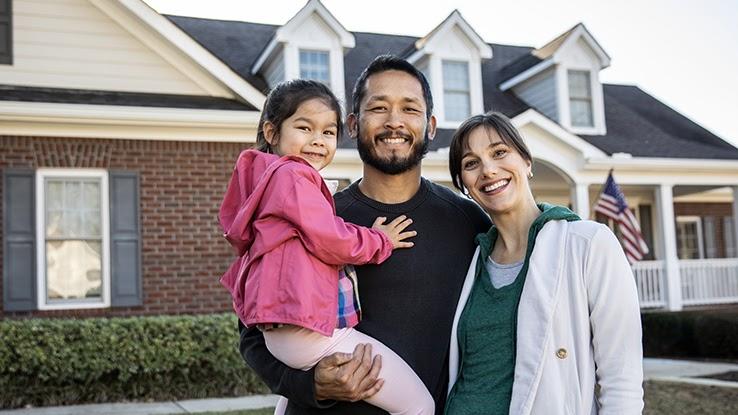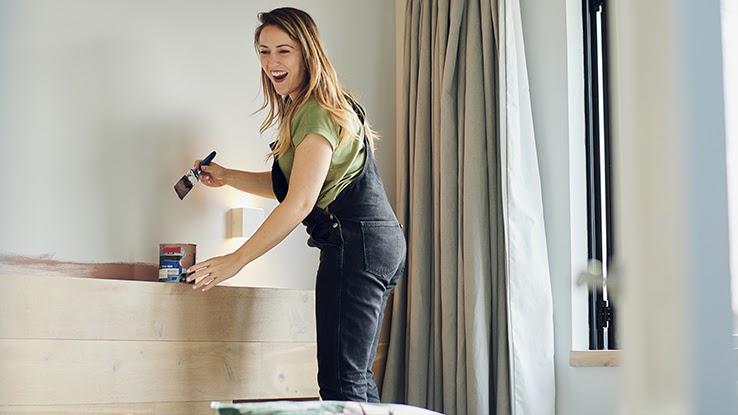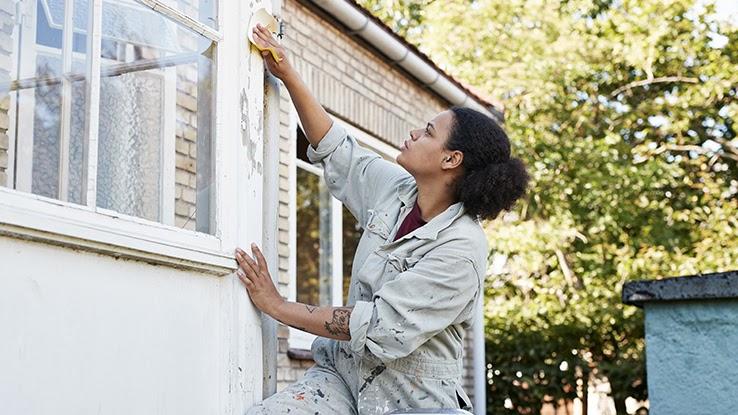
Looking for a great deal on a comfortable home? You might want to turn to the U.S. government. It might not seem like the most logical path to homeownership — or at least not the first place you’d think to look for properties. But the U.S. Department of Housing and Urban Development, also known as HUD, runs homebuying programs that can help you find an affordable new place to purchase, even if it’s your first time buying a house.
The homebuying qualifications for purchasing a HUD property are different from what you’ll encounter when you’re applying for a traditional mortgage, however. But that’s just one big reason why it’s important to understand the process and eligibility to determine whether this avenue might be an option for you. From what a HUD home is to where to find these types of properties for sale, we’ve rounded up everything you need to know about qualifying for a HUD home to get you started.
What Is a HUD Home?

HUD homes are residential properties that were once owned by homeowners who financed their mortgages through the Federal Housing Administration (FHA), a U.S. government agency that aims to promote home ownership by offering mortgages and mortgage insurance. For various reasons, these homeowners became unable to continue repaying their loans; this is a process called defaulting. Because they defaulted on their mortgages, their homes went into foreclosure, which, with a typical mortgage, means the lender then repossesses the home and attempts to sell it to recoup the loss. When an FHA-mortgaged home goes into foreclosure, it gets put into the HUD program.
HUD takes over the foreclosed property and sells it to a new owner for fair market value to recover some of the money lost. Prices on HUD homes are often lower to entice buyers and give the agency a better chance at recouping losses. As a result, this program allows buyers who are experiencing financial difficulties a chance at homeownership. It’s important to note that not all foreclosures are a part of the HUD program. If you have a loan that isn’t backed by the FHA and your home is foreclosed on, your bank attempts to resell the home on its own. Only FHA-backed homes become part of HUD during foreclosure.
What Are the Benefits of HUD Homes?

As mentioned, the HUD is looking to sell off these homes as quickly as possible. This can be a big advantage to potential buyers. With a HUD home, you know you have a motivated seller who’s looking to make a deal — it’s the U.S. government, which even provides incentives to encourage people to buy HUD homes.
The HUD Good Neighbor Next Door program is an example of one of these incentives. In certain markets, the government offers a 50% discount on a home to community workers to help revitalize a neighborhood. Community workers include police officers, firefighters, teachers and medical personnel. Other programs include the Housing Choice Voucher and One Dollar Program, which aim to provide affordable housing families with low incomes and people with disabilities.
Another perk is the chance to buy a home with a low down payment. This means you could hold onto some cash to pay for closing costs or make updates and renovations to the property. In addition to these incentives, you’ll also be able to take advantage of FHA financing by putting as little as 3.5% down on a home.
How to Find a HUD Home

HUD homes aren’t only listed on websites like Zillow or Redfin where you typically look for properties using the Multiple Listing Service. While they often appear on those types of sites, you’ll also find a special database on hudhomestore.com that contains all the HUD listings in the United States. Most real estate agents are also licensed to sell HUD homes. If you’re currently working with an agent, you can let them know that this is an opportunity you’re interested in. To sell HUD homes, real estate agents must submit specific paperwork and documentation to the Department of Housing and Urban Development.
One key difference you’ll notice when looking for HUD homes is that there’s typically a deadline by which you must submit an offer. This is because HUD homes sell at auctions. Once the open offer period ends, the department reviews all the bids for the home. If the offers are too low, HUD opens the bidding process again and may lower the price until it finds a buyer.
Are There Risks to Buying HUD Homes?

While HUD homes may come at lower asking prices, they aren’t without risk. HUD homes are all sold as-is. This means there’s no negotiating for repairs during the sales process. However, you can get a home inspection done before you place your bid. This is critical; without a home inspection, you could end up with a home that needs a lot more repairs than you bargained for.
Once you have your home inspection, you’ll be able to make a more educated decision about the price you bid on the home. After the inspection, if you see the home needs a new roof and new windows, you can factor this into your offer. However, not all homes will need extensive repairs or improvements. Some homes are move-in ready; HUD monitors them to make sure they’re secure while they sit unoccupied.
As with any home, you’ll know upfront through the inspection process whether renovations are necessary. If you get the house at low market value, updating the home gives you an opportunity to create equity in the home right away.
HUD Home Qualifications and Restrictions

To buy a HUD home, you don’t need to use FHA financing. You can use any form of financing from traditional mortgages to VA loans. If your HUD home needs a lot of work, an FHA 203k loan may be a good option. With these loans, you’re able to roll renovation costs into your mortgage. Your real estate agent or your mortgage company can offer guidance as to which financing option will work best. You can also pay for the home in cash.
To buy a HUD home, there are a few restrictions you’ll want to keep in mind. First, the home must be owner-occupied for at least a year. This means you can’t buy the home and flip it a month later. This is put in place so primary homeowners are able to obtain homes instead of investors who would normally purchase distressed properties. If you’re buying the home under the Good Neighbor Next Door program, you must be employed as a community worker, and you have to live in the home as the primary occupant for at least three years.





